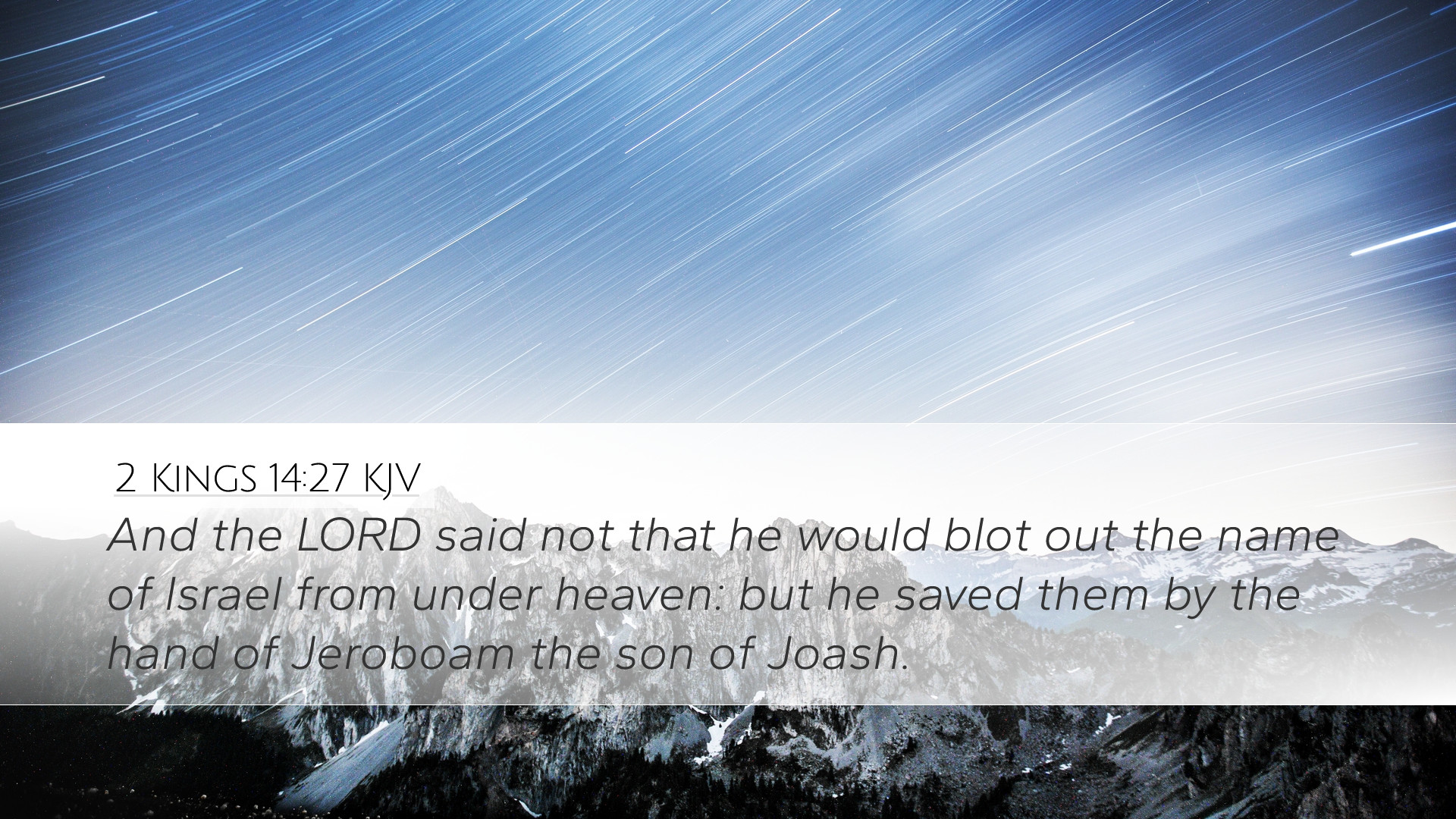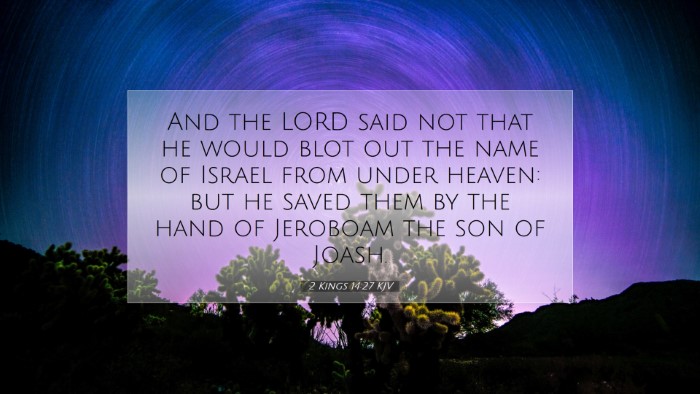Commentary on 2 Kings 14:27
2 Kings 14:27 states:
"And the Lord said not that he would blot out the name of Israel from under heaven: but he saved them by the hand of Jeroboam the son of Joash."
Contextual Overview
This verse occurs in the context of God's dealing with the kingdom of Israel during a time of great political and spiritual turmoil. Jeroboam II, a king notorious for his idolatrous practices, ruled Israel, and yet under his reign, we see an unexpected divine intervention whereby God preserved the nation from total destruction.
Historical Background
The events surrounding 2 Kings 14:27 are set against a backdrop of the divided kingdom; the nation of Israel was facing internal strife as well as external threats. Jeroboam II's reign succeeded in expanding Israel's boundaries and improving Israel's economic status, yet it was marked by a departure from worshipping Yahweh—a key reason why the divine favor could be seen despite the king's failings.
Theological Insights
- Divine Preservation: The verse emphasizes God's sovereignty and mercy, illustrating that despite Israel's unfaithfulness, He chose not to completely abandon them. Matthew Henry notes that God's actions are not based solely on the righteousness of His people, but rather on His covenantal promises.
- The Role of Leadership: Jeroboam II is portrayed as a complex character. Albert Barnes suggests that, while the king was instrumental in restoring borders, his willful disobedience to God invited divine judgment. This signifies that leadership carries weighty responsibility, highlighting the profound impact a leader has on their people.
- Grace Amidst Judgment: Adam Clarke observes that God's merciful act of preserving Israel, despite its idolatry and wickedness, is a testament to God's love. This serves as a reminder of the grace that exists amidst impending judgment—a theme prevalent throughout the Hebrew Scriptures.
Exegesis of Key Terms
Exploration of significant phrases from the text provides a richer understanding:
- "The Lord said not that he would blot out the name of Israel": This phrase signifies God's faithfulness to His covenant. The phrase implies a definitive action, reflecting God’s ongoing relationship with Israel, which, as Clark emphasizes, is grounded in divine promise rather than human merit.
- "He saved them by the hand of Jeroboam": The use of "saved" indicates deliverance from dire circumstances. Barnes elaborates that Jeroboam's leadership, although flawed, was utilized by God as a means of preservation for Israel, showing that God can work through imperfect vessels to accomplish His purposes.
The Implications of Divine Intervention
As we reflect on this passage, several implications emerge for contemporary audiences:
- The Nature of God: This verse is a powerful reminder of God’s desire for redemption. Even in times of apostasy, He is inclined towards mercy, emphasizing how grace can transcend human disobedience.
- The Importance of Intercession: The fact that the Lord intervened highlights the effectiveness of intercession in prayer. Reminds us that the spiritual state of a nation can change through the righteous actions of an individual, as intercessory prayer has the power to influence divine outcomes.
- Lessons for Ministry: For pastors and theologians, it serves as a call to engage in ministry with an understanding of God’s overarching grace. In the face of societal decline, the focus should be on proclaiming hope and truth, rooted in a relationship with God who delights in showing mercy.
Conclusion
In summary, 2 Kings 14:27 encapsulates the interplay between divine grace and human failure. It exemplifies God’s reluctance to erase His people, choosing instead to save Israel through Jeroboam II, a king whose own faith did not align with God’s commandments. This passage serves as both a warning and encouragement: a warning against complacency and idolatry, and encouragement that God is ever ready to extend mercy and bring restoration, even amid our failures.


